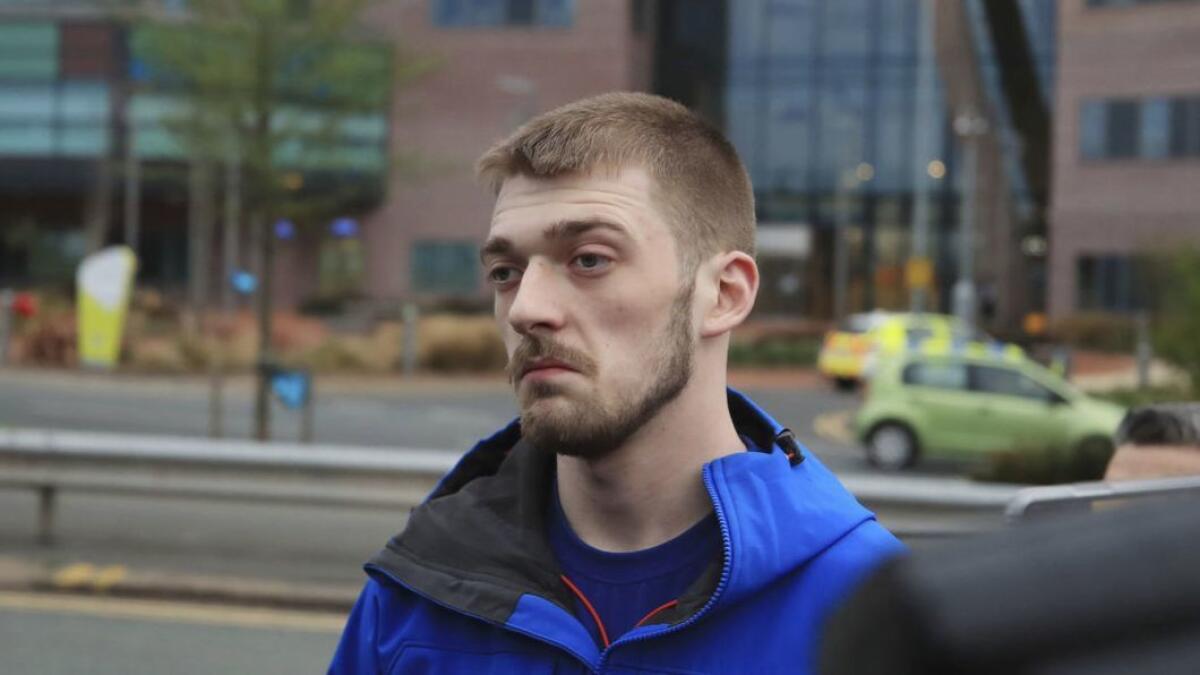U.K. judge rejects bid to take sick toddler Alfie Evans to Italy for treatment. Pope had tried to intervene

- Share via
Reporting from LONDON — A British judge on Tuesday said the parents of a terminally ill toddler cannot take him to Italy for treatment, a course of action that U.K. courts have said would be futile and wrong.
Justice Anthony Hayden rejected what he said was a final legal appeal by the parents of 23-month-old Alfie Evans, who has a degenerative neurological condition.
The judge said the ruling “represents the final chapter in the life of this extraordinary little boy.”
The months-long legal battle between Alfie’s parents and his doctors has drawn interventions from Pope Francis and Italian authorities, who have supported the couple’s desire to have their son cared for at the Vatican’s hospital.
Doctors say Alfie is in a “semi-vegetative state” as a result of a degenerative brain condition that medics have been unable to identify precisely. Doctors treating him at Alder Hey Children’s Hospital in Liverpool say he has little brain function and further treatment is futile.
But his parents have refused to accept the decision and fought to prevent Alfie’s life support from being switched off. Tom Evans, 21, and Kate James, 20, want to take their son to the Vatican’s Bambino Gesu Pediatric Hospital.
Lawyers for Alfie’s parents had secured Tuesday’s hearing a day after the toddler’s life support was withdrawn after a series of court rulings blocked further medical treatment.
Evans said earlier Tuesday that his son survived for six hours with no assistance and that doctors had subsequently resumed providing oxygen and hydration.
In court, the family’s lawyer, Paul Diamond, read a statement from Evans saying his son was doing “significantly better” than previously believed. Doctors say that it is hard to estimate how long Alfie will live without life support, but that there is no chance his condition will improve.
At Tuesday’s emergency court hearing in Manchester, the judge asked whether there might be “other options” that involved Alfie’s parents taking their son home.
Emotions have run high over the case, which has seen Alfie’s parents supported by a Christian charity and a band of supporters known as “Alfie’s Army” protesting regularly outside the hospital. They have blocked roads and on Monday tried to storm a door of the hospital before being pushed back by police.
Pope Francis has met Alfie’s father and made appeals for the wishes of the boy’s parents to be heeded, saying only God can decide who dies.
The head of the Bambino Gesu hospital said the Italian Defense Ministry had a plane ready to transport Alfie to Italy if he were allowed to seek treatment. In an interview with Italy’s Radio 24, Mariella Enoc, who traveled to Liverpool to personally try to intervene on behalf of the parents, said she spoke to the Italian ambassador in London. The ambassador said the plane could leave with him in a matter of minutes.
On Monday, the Italian Foreign Ministry announced it had granted Alfie Italian citizenship to facilitate his arrival and transport.
Under British law, it is common for courts to intervene when parents and doctors disagree on the treatment of a child. In such cases, the rights of the child take primacy over the parents’ right to decide what’s best for their offspring.
The emotive case recalls the short life of another British child, Charlie Gard, who died of a rare genetic disease in July 2017 after a vicious court battle in which his parents sought treatment first in the U.S. and then Italy.
The case drew interventions from the pope and President Trump and set off debates on the rights of children and parents, the responsibilities of hospitals and the role of the state.
More to Read
Sign up for Essential California
The most important California stories and recommendations in your inbox every morning.
You may occasionally receive promotional content from the Los Angeles Times.










